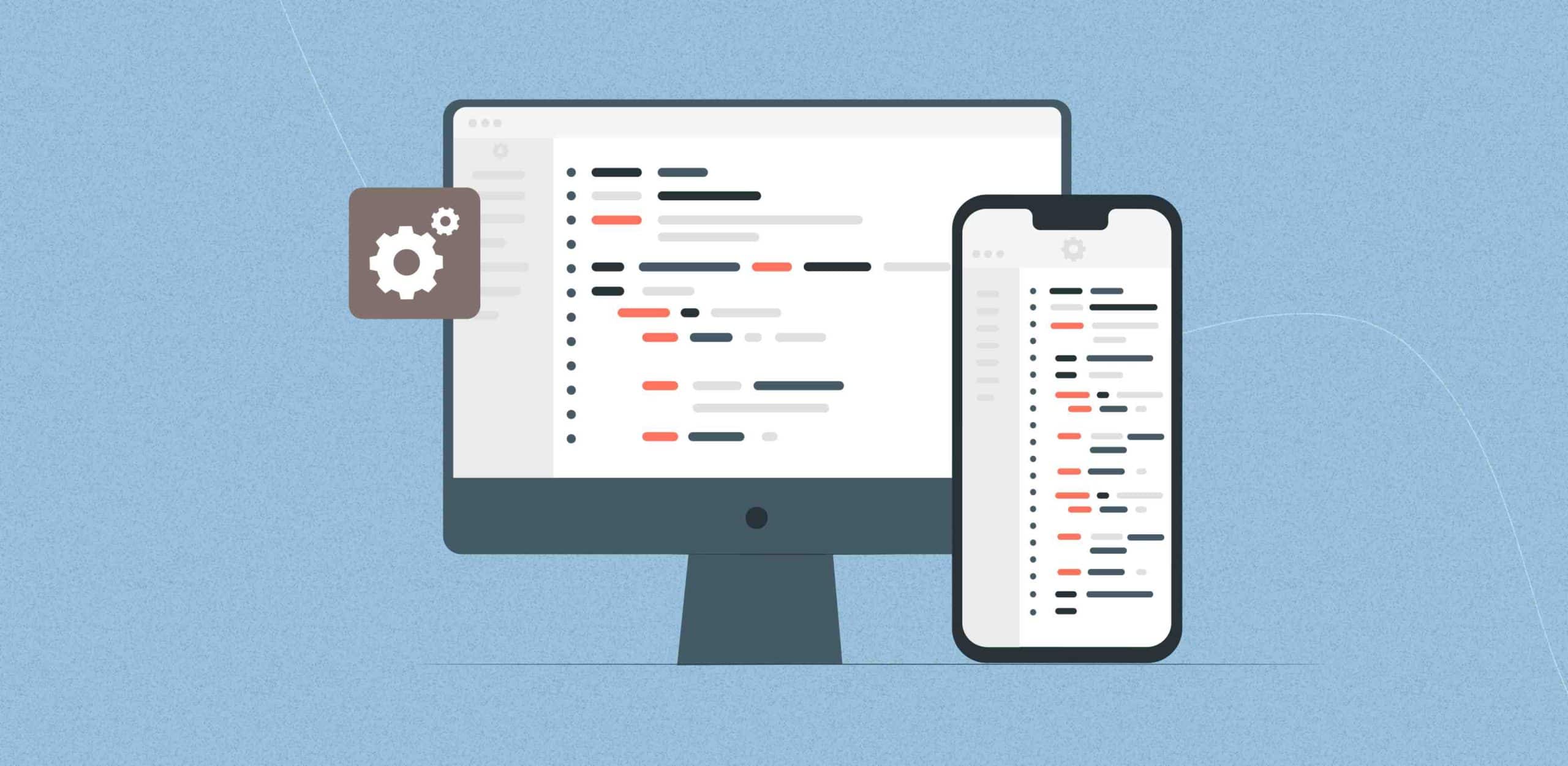Real-time communication (RTC) has become an essential component of effective marketing and eCommerce strategies in today’s fast-paced digital world. As businesses strive to meet the evolving demands of their customers, RTC offers a way to engage, support, and convert users more efficiently.
This blog explores the concept of Real-time Communication, its significance in marketing and eCommerce, and the future trends that businesses should be aware of.
What is Real-Time Communication?
Real-time communication (RTC) refers to the instantaneous exchange of information between two or more parties. Unlike traditional communication methods that involve delays, such as email or voicemail, RTC enables immediate interaction, making it possible to hold conversations as if both parties were in the same room. This immediacy transforms how businesses and customers interact, leading to more dynamic and engaging exchanges.
Key Features of Real-Time Communication
Immediacy
The core feature of Real-time Communication is its ability to provide instant communication. Messages are delivered and received without delay, ensuring that information is exchanged in real-time. This immediate responsiveness is crucial in various scenarios, from customer service to team collaboration.
Interactivity
Real-time Communication fosters interactive conversations. Unlike one-way communication methods, RTC allows for a back-and-forth exchange, similar to an in-person conversation. This interactivity enhances user engagement and satisfaction, as participants can ask questions, provide feedback, and clarify doubts instantly.
Accessibility
Real-time Communication technologies are designed to be accessible from a wide range of devices, including smartphones, tablets, and computers. This cross-device compatibility ensures that users can engage in real-time communication regardless of their location or the device they are using.
Types of RTC Technologies
RTC technologies encompass a range of tools and platforms that facilitate real-time interaction. Some of the most common RTC technologies include:
Instant Messaging
Instant messaging platforms like WhatsApp, Facebook Messenger, and Slack enable users to send and receive text messages in real-time. These platforms often support multimedia content, such as images, videos, and voice messages, enhancing the communication experience.
Live Chat
Live chat tools are widely used in customer support and eCommerce. Platforms like Zendesk Chat and Intercom allow businesses to provide instant support to customers visiting their websites. Live chat windows typically pop up on the site, offering immediate assistance and answering customer queries on the spot.
Video Conferencing
Video conferencing tools, such as Zoom, Microsoft Teams, and Google Meet, facilitate face-to-face interactions over the internet. These platforms are essential for remote work, virtual meetings, and consultations, providing a personal touch that text-based communication lacks.
Voice Over Internet Protocol (VoIP)
VoIP services like Skype and WhatsApp Calls enable voice communication over the internet. These services are often more cost-effective than traditional phone calls, especially for international communication.
WebRTC
WebRTC (Web Real-Time Communication) is a technology framework that allows real-time communication directly through web browsers. It supports video, voice, and data sharing, enabling developers to integrate RTC features into web applications without requiring additional plugins or software.
Real-time Communication in Marketing
In the realm of marketing, real-time communication has revolutionized how businesses interact with their audience. By leveraging RTC technologies, companies can create more personalized, engaging, and timely marketing campaigns.
What is the Importance of Real-Time Communication in Marketing?
Real-time communication (RTC) has become a vital tool in modern marketing strategies, offering businesses the ability to interact with their audience in immediate and dynamic ways. By integrating RTC technologies, companies can significantly enhance customer engagement, provide personalized marketing experiences, and improve overall customer service. This section explores the various ways RTC transforms marketing efforts and its profound impact on business success.
Enhanced Customer Engagement
- Interactive Campaigns: Real-time Communication allows for interactive marketing campaigns, where customers can participate in live polls, Q&A sessions, and webinars. This level of engagement fosters a stronger connection between the brand and its audience.
- Immediate Feedback: Businesses can gather instant feedback from their customers, allowing for quick adjustments to marketing strategies.
- Tailored Messages: With Real-time Communication, marketers can deliver personalized messages to customers based on their behavior and preferences. This personalization can significantly improve the effectiveness of marketing efforts.
- Real-Time Analytics: Marketers can analyze user interactions in real-time, enabling them to refine their strategies on the go.
- Instant Support: Real-time communication tools, such as live chat and video conferencing, enable businesses to provide immediate support to customers. This can help resolve issues quickly and enhance customer satisfaction.
- Proactive Engagement: Businesses can use RTC to proactively reach out to customers with special offers, reminders, and follow-ups, creating a more dynamic customer service experience.
See what are the top 8 pre-launch steps in WebRTC App Development.
Get in touch with us to explore custom software solutions for your startup!
Real-time Communication in eCommerce
eCommerce platforms have seen a significant transformation with the integration of RTC technologies. From enhancing customer service to boosting sales, Real-time Communication plays a crucial role in the success of online retail businesses.
What are the Benefits of Real-Time Communication in eCommerce?
Real-time communication (RTC) has become a cornerstone of successful eCommerce operations. By enabling instantaneous interactions, RTC helps online retailers enhance customer experience, boost sales, and foster loyalty. The benefits of incorporating RTC into eCommerce platforms are multifaceted and substantial.
Increased Conversion Rates
- Reducing Cart Abandonment
Live chat for eCommerce can help address customer queries in real-time, reducing the chances of cart abandonment. Shoppers often leave their carts due to unresolved questions or uncertainties about a product. By providing instant answers and assistance, live chat can guide customers through the purchasing process seamlessly, addressing their concerns and encouraging them to complete their transactions.
- Personalized Shopping Assistance
RTC tools like video calls and live chat enable eCommerce platforms to offer personalized shopping assistance. For instance, a customer interested in a high-value item may appreciate a live video consultation with a sales representative who can provide detailed information and recommendations. This personalized approach makes it easier for customers to find and purchase products, thereby increasing sales and customer satisfaction.
Better Customer Retention
- Ongoing Support
Real-time customer support ensures that customers receive the help they need whenever they encounter issues. This continuous support builds trust and loyalty, leading to higher customer retention rates. Whether a customer has a question about a product, needs help with a return, or requires assistance with an order, real-time support can provide immediate and effective solutions.
- Engaging Post-Purchase Communication
Businesses can use real-time communication to maintain engagement with customers even after a purchase. This can include sending order updates, requesting feedback, and offering personalized recommendations based on previous purchases. By staying in touch with customers and providing ongoing value, businesses can foster long-term relationships and encourage repeat purchases.
Enhanced User Experience
- Seamless Interactions
RTC technologies provide a seamless communication experience, enhancing the overall user journey on eCommerce platforms. Customers can switch between different communication channels, such as live chat, video calls, and messaging, without losing context. This fluid interaction enhances convenience and satisfaction, making it easier for customers to get the help they need.
- Convenient Support Channels
Offering multiple RTC channels, such as live chat and video support, ensures that customers can choose their preferred method of communication. Some customers may prefer the immediacy of live chat, while others might find video support more helpful for complex issues. By catering to different preferences, businesses can improve user satisfaction and create a more inclusive customer service experience.
Get to know how to select the right WebRTC App Development Company for your business.
Conclusion
Real-time communication is reshaping the landscape of marketing and eCommerce. By leveraging RTC technologies, businesses can enhance customer engagement, provide personalized marketing, and offer superior customer support. The benefits of real-time communication in eCommerce are evident in increased conversion rates, better customer retention, and an enhanced user experience. As we look to the future, advancements in AI, omnichannel communication, and VR/AR will continue to drive innovation in real-time communication. Businesses that embrace these trends will be well-positioned to stay competitive and meet the evolving demands of their customers.
If you’re interested in implementing or custom developing a real-time communication solution tailored to your business needs, contact us today. Our team of experts is ready to help you leverage the power of RTC to transform your marketing and eCommerce strategies. Let us assist you in staying ahead of the competition and exceeding customer expectations.
Let’s transform your business for a change that matters.
F. A. Q.
Do you have additional questions?
What is Real-Time Communication (RTC)?
Startups should consider factors such as the partner’s experience, expertise, portfolio, and track record of delivering cost-effective solutions when choosing a custom software development partner.
How does Real-time Communication benefit marketing strategies?
Real-time Communication enhances customer engagement, allows for personalized marketing, and improves customer service. It enables marketers to interact with customers in real-time, gather instant feedback, and adjust their strategies quickly.
What are the key RTC technologies used in eCommerce?
Key RTC technologies in eCommerce include live chat, video conferencing, instant messaging, and WebRTC. These tools facilitate real-time interactions between businesses and customers.
How can live chat reduce cart abandonment in eCommerce?
Live chat addresses customer queries instantly, providing support and resolving issues that might otherwise lead to cart abandonment. By guiding customers through the purchasing process in real-time, businesses can increase conversion rates.
Why is real-time customer support important for eCommerce platforms?
Real-time customer support ensures that customers receive immediate assistance when they encounter issues, leading to higher satisfaction and loyalty. Continuous support helps build trust and encourages repeat purchases.
What role does video conferencing play in marketing and eCommerce?
Video conferencing enables face-to-face interactions, which can be used for high-value customer consultations, personalized shopping assistance, and virtual events. It adds a personal touch to customer interactions, enhancing engagement and trust.
How can businesses integrate RTC technologies into their existing systems?
Businesses can integrate RTC technologies by selecting the right tools that fit their needs, ensuring compatibility with their current systems, and providing training for their staff. Partnering with a tech solutions provider can also facilitate seamless integration.
What are the future trends in real-time communication?
Future trends in real-time communication include advancements in AI and machine learning, the rise of omnichannel communication, and the integration of virtual and augmented reality. These innovations will further enhance the capabilities and applications of RTC.
How does personalized communication through RTC improve customer experience?
Personalized communication through RTC allows businesses to tailor their interactions based on individual customer preferences and behavior. This leads to more relevant and engaging experiences, increasing customer satisfaction and loyalty.
What steps should a business take to implement Real-time Communication solutions?
To implement Real-time Communication solutions, businesses should start by assessing their communication needs, choosing appropriate RTC tools, ensuring technical requirements are met, training their staff, and continually monitoring and optimizing the system for best performance. Consulting with an RTC expert or solutions provider can also streamline the process.













